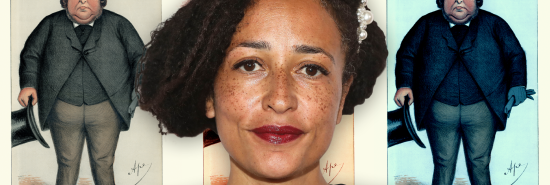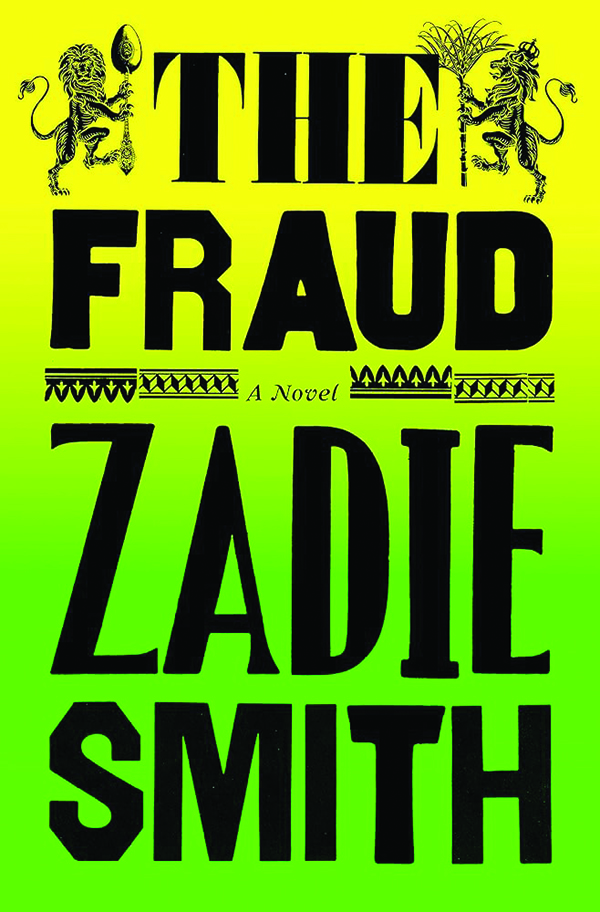
Zadie Smith’s new novel The Fraud is more admirable in attempt than execution
J. Oliver Conroy
White Teeth, Zadie Smith’s 2000 debut, established her as a writer of lively, zeitgeist-observing comic novels. With The Fraud, her sixth novel and her first work of historical fiction, she takes on the challenge of training her eye on the more alien world of 19th century Britain. In an elaborate narrative threading fiction around real figures and events, she asks questions about identity, legitimacy, and posterity. Who determines the truth in a hotly conflicted public debate? Who gets left in, or out, of the historical record? What does it mean to inherit something, and what is an honest inheritance? The result is interesting and uneven.

A real, though now mostly forgotten, event sits at the heart of this complicated and at times confusing novel. In 1854, a British aristocrat and former military officer, Roger Tichborne, went missing in a shipwreck off South America. His heartbroken mother, having heard rumors that survivors of the wreck had been picked up by a ship bound for Australia, placed newspaper ads seeking her son.
EDUCATION ADVOCATES LAUNCH SPEECH CODE TRACKER FOR PUBLIC SCHOOL DISTRICTS
When an Australian butcher living under the name Thomas Castro later turned up, splashily identifying himself as the long-lost Tichborne, the claim was met with anger by most of Tichborne’s relatives and ridicule by middle- and upper-class Britons. The skeptics noted that Castro had a cockney accent, could not understand several languages the missing Tichborne was known to have spoken or read, lacked a tattoo that acquaintances recalled him having had, and was vastly more portly.
But Tichborne’s mother and some former military colleagues defended Castro’s legitimacy, as did Andrew Bogle, a Jamaican ex-slave and family servant who agreed to tour with Castro and endorse his case. The bombastic and indefatigable Castro, whom the courts and press referred to simply as “The Claimant,” also enjoyed the fierce support of many poor and working-class Britons, who saw in him a plain-speaking Everyman fighting a condescending and self-protecting establishment. The ensuing legal battle was one of the most lengthy and sensational in British history, with both sides accusing the other of peddling what we might today call “fake news.”
By now you may have noticed certain parallels with our current moment and guessed at some of the reasons for Smith’s interest. She can’t resist dryly noting, for example, that a periodical has “whole pages given over to the anti-vaccination movement, for who knew the true intentions of these rich men and their needles?” But Smith mostly avoids turning the Tichborne saga into a heavy-handed allegory or satirical bludgeon. She takes the harder road of trying to see and experience the case as contemporaries would have.
We get the story mostly from the perspective of Eliza Touchet, a smart, conscientious Scottish widow keeping house for her cousin by marriage, the writer and bon vivant William Ainsworth. A prolific though not very good novelist, Ainsworth for a time outsold Charles Dickens before being abandoned by posterity. Smith paints a funny portrait of an insecure man-child protected by the women around him. Ainsworth’s illiterate maid-turned-second-wife, Sarah, is a rabid supporter of Castro’s cause. Through her, Touchet gets drawn into the Tichborne case and eventually encounters Andrew Bogle.
Despite her skepticism of Bogle’s support for the Claimant, Touchet is awed by his thoughtfulness and integrity. In a flashback interlude partly taking place in Jamaica, Bogle becomes the novel’s second perspective. Through him, we see the realities of slavery, whose commonplace brutalities Smith allows to quietly speak for themselves — sexually predatory slavemasters, horrific disease, women’s breasts cut off as punishment — before drifting back to England and eventually back to Touchet’s point of view.
Smith’s skill as a stylist and mimic are put to good use throughout The Fraud. Her ear finds a voice that is relatable while still feeling of its purported era, with passages that wouldn’t be too out of place in Charles Dickens while still preserving a shade of Smith’s own sense of irony. When Touchet disagrees with a rather loud male acquaintance about social reform, the man’s response drips with Whiggish condescension: “It is the age of MEN WITH IDEAS, Mrs Touchet! The age of MEN OF INDUSTRY AND CREATIVE ENERGY. Better a benign manager than AN IMPERIOUS LORD.”
But scenes have an odd vagueness, at times, without the vivid description that the best Victorian writing had. And the novel’s structural choices are another problem. Smith makes some ambitious but risky decisions, such as fragmenting The Fraud into numerous short chapters sometimes less than a page in length, and changing perspectives so far into the novel. In addition, she employs basically passive characters as protagonists, and she frequently shifts in time and place. The reader is jerked from one time frame to a scene decades earlier whose relevance to the larger story isn’t immediately clear. Smith also makes unnecessary and halfhearted gestures toward backstories — such as the notion that Touchet had a lesbian past — that are never convincingly filled in.
There is a logic to some of these decisions, of course: Bogle is a formerly enslaved black man, Touchet a woman, and giving them realistically passive roles in the story is itself a commentary on their times and a clear tie to the novel’s larger themes. Similarly, the change in perspective allows Smith to illustrate the distance between some characters’ experience of slavery — as an intellectual abstraction, discussed over sherry — and its crushing realities for the people actually affected.
These approaches undermine the novel’s momentum, however — the reader can be left confused or even bored. The Fraud is an admirable undertaking, even if Smith’s undeniable talent as a stylist and her general perceptiveness and intellectual heft aren’t always enough to get around the book’s problems.
CLICK HERE TO READ MORE FROM THE WASHINGTON EXAMINER
J. Oliver Conroy’s writing has been published in the Guardian, New York magazine, the Spectator, the New Criterion, and other publications.
